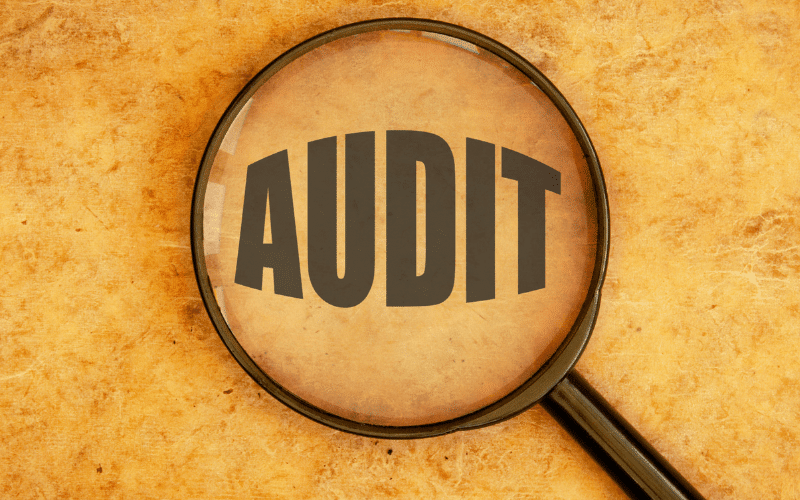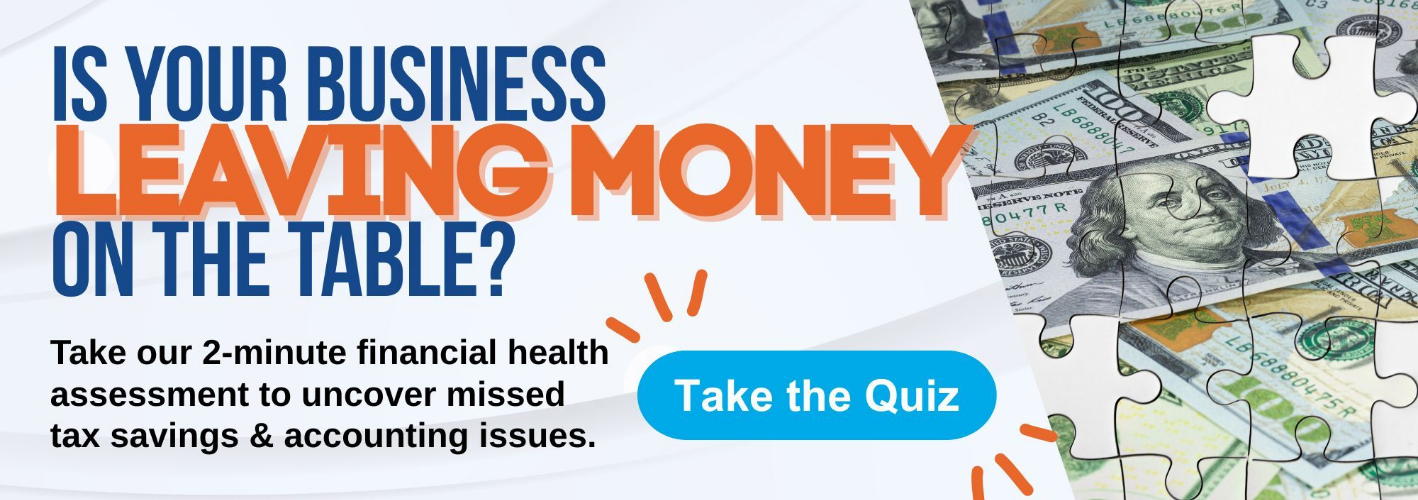Top 12 Red Flags for Income Tax Audits by the Government
December 14th, 2022 | 8 min. read

Have you been subjected to an audit before, or are you just curious about what leads to one?
Either way, you should know that an accountant can guide you out of the worst of times and help prevent you from throwing up red flags in the future.
At CSI Accounting & Payroll, we've worked on small business accounting and taxes for more than 50 years. We've seen it all! Here are the top 12 red flags that might lead the government to examine your tax return, based on what we've seen from small businesses just like yours.

The 12 Red Flags
1. Making too much money.
What do we mean by "too much money"? While the overall audit rate is less than 1%, if your income is over $250,000, the rate starts to go up. Returns with income over $1,000,000 will get a visit from the IRS 12.5% of the time. That's a one-in-eight risk!
During COVID, the IRS fell behind on their work, and that meant fewer audits. However, now they've dug themselves out and have even been granted money for large-scale hiring. That means the audit rate is back up to where it used to be!
2. Forgetting to claim the income shown on your Forms W-2 or 1099.
The government has a copy of your tax return, and the IRS is very good about matching it to these forms and catching unreported income. Different government agencies compare notes on your taxes. The IRS and SSA compare, and federal and state governments compare.
If your income doesn't match up, you won't always be subject to an audit. Sometimes you may receive a notice from the IRS that says the records don't match, and if the amount is small, you will just be billed for the difference. To avoid any unreported income or errors in this department, be sure to give your accountant all of your forms!
3. Large charitable donations compared to the averages for your income level.
Why is this a red flag to the government? You may think that it would cause suspicion that you're making more income. However, if you are claiming you've made donations higher than 10 percent of your reported income, they will think you haven't donated or have inflated the amount. Charitable deductions reduce your taxes.
If the donation is legitimate, you should have documentation to back it up. Charities will typically provide this at the time of your donation, but if not, be sure to ask.
4. Claiming the home office deduction.
If you use part of your home to run your business, you can deduct the expenses. Because of some of the major issues associated with it, we recommend asking your accountant if you think you qualify for this - they will determine if you do.
This deduction continues to be an issue because people abuse it and maintain poor records. The abuse occurs when people try to deduct all of their house expenses against their business income - or if their business is really more of a hobby that occasionally generates money.
5. Losses from the rental of real estate.
To claim losses from real estate rental, you must own a second house or building to rent out and have documented losses on it. There are limits on what can be deducted here, so we recommend you ask a tax professional for help to ensure you don't claim too large of a loss that would put you at risk of an audit.
6. Business meals, travel, and vehicle expenses.
What will an accountant say about these business expenses? To keep them business expenses. This gets flagged for audits because people often will try to have their business pay for their personal meals and travel.
Use the guidance of an accountant, keep good records and receipts, and you will be fine. Learn more about how to categorize business receipts here.
7. Claiming 100% business use of a vehicle when you do not own another vehicle.
If you only own one vehicle and claim it is only for business use, you may be in trouble. Your life is not 100 percent business (because nobody's is!), and you need to have a way to get to the grocery store or manage your personal life in other ways. If you truly don't use your only vehicle for personal use, you must show that you have a way to transport yourself in your personal life.
8. Having business losses too many years in a row.
If you're not turning a profit over time but also not going out of business, that rings as odd to the government. Even more alarm bells go off if you don't have any employees or operate out of a house with no business location.
The IRS can declare any business as a hobby instead and disallow the deductions for losses. We know you don't want that to happen!
9. Businesses that primarily transact cash.
The underground economy is a big fan of cash transactions, but they probably aren't the ones filing tax returns! Even checks are gradually being accepted by fewer places. A business should ideally have a dedicated credit card (separate from your personal credit cards) to manage most or all business transactions. No commingling funds!
10. Foreign bank accounts.
The government is constantly trying to keep up with foreign bank accounts. They're often used as a way for people to hide money from the U.S. taxing system. This one is a given - I mean, you've seen it in the movies, right? This is an automatic red flag to our government.
11. Cash transactions exceeding $10,000.
This is similar to #9. Large cash transactions are seen as highly unusual to the point where we have safety measures in place. For example, if a bank gets a cash deposit of more than $10,000, they need to notify the IRS. Or if a business tries to buy office furniture in cash exceeding $10,000, they will have to fill out paperwork for the IRS on the spot.
We cannot stress enough that you should have a dedicated business credit card for purchases over $10,000. It's easier than carrying that much cash, anyway.
12. Other deductions that are high in comparison to the taxpayer’s income.
This point is similar to #3. Whether it's medical expenses, property taxes, or home mortgage interest, all of these things lower your taxes.
If they're high in comparison to your income, this tells the government that maybe you're claiming personal expenses or are not reporting all of your income. Ask your accountant for guidance on how to correct this and avoid this in the future.
Worried about an audit?
If any of the points above apply to you, you're at a higher risk of being audited than the average person.
We're sure that leaves you with many questions, so our professionals are here to help - and they're specially trained in compliance issues!
Want even better news? If you work with CSI Accounting & Payroll, agent-level audit representation is included in your monthly fee. We can help you! Ready to make sure every tax form is done correctly? Click the button below for a free consultation.
If you're not ready for a conversation yet, click the image below to learn more about how a monthly accountant can help your small business:
Brian is the owner of CSI Accounting & Payroll. After earning a double major in Accounting and Financial Management from the University of North Dakota, he joined CSI in 1996 and purchased it in 2002. With decades of experience, Brian now focuses on education: contributing to professional associations and business books, actively participating in continued learning for his team, and, of course, sharing transparent insights on CSI’s website.


